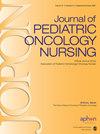儿童肿瘤护理中不愉快症状理论:概念与实证的契合?
IF 1.9
3区 医学
Q2 NURSING
Journal of Pediatric Oncology Nursing
Pub Date : 2019-11-01
Epub Date: 2019-04-26
DOI:10.1177/1043454219844225
引用次数: 9
摘要
症状管理知识是儿科肿瘤护理研究的重点。理论和模型可以构建儿童癌症症状的研究框架。本文根据目前在成人肿瘤研究中的应用以及迄今为止在儿科肿瘤中的有限应用,描述和分析了不愉快症状理论(TOUS)这一中间理论在概念上和经验上与儿科肿瘤护理的契合。在PubMed和CINAHL数据库中使用关键词“不愉快症状理论”和“癌症”进行检索,检索时间范围为2000年至2017年,共获得103篇摘要。20份已发表的报告符合审查资格标准;只有一项包括儿科肿瘤患者。到目前为止,还没有研究测试了TOUS在儿科中的所有组成部分。在已完成的研究中,表现的TOUS组成部分似乎被低估了,这些研究的重点是患者报告的生活质量,而不是与主观症状报告同时进行的感知行为或表现指标。此外,在TOUS指导下的大多数研究中,家庭的影响在儿童肿瘤学中是必不可少的。TOUS是一个结构复杂的框架,如果包括家庭影响和感知功能,它将在概念上适合儿科肿瘤学。需要对这一人群进行研究,并以TOUS为指导,尽管测试TOUS中所有理论联系可能需要大量患者样本,因此,考虑到癌症在儿童时期是一种罕见的疾病,因此需要多地点方法。本文章由计算机程序翻译,如有差异,请以英文原文为准。
The Theory of Unpleasant Symptoms in Pediatric Oncology Nursing: A Conceptual and Empirical Fit?
Symptom management knowledge is a priority for pediatric oncology nursing research. Theories and models can frame the studies of symptoms experienced during childhood cancer. This article describes and analyzes the middle-range theory, theory of unpleasant symptoms (TOUS), for its conceptual and empirical fit with pediatric oncology nursing based on its current use in adult oncology research and its limited use to date in pediatric oncology. Searches in PubMed and CINAHL databases using the keywords theory of unpleasant symptoms and cancer and covering the time period 2000 to 2017 yielded 103 abstracts for review. Twenty published reports met eligibility criteria for review; only one included pediatric oncology patients. No study to date has tested all the components of the TOUS in pediatrics. The TOUS component of performance appears to be underaddressed across completed studies that instead include a focus on patient-reported quality of life rather than on perceived behavioral or performance indicators concurrent with the subjective symptom reports. Additionally, the influence of family, essential in pediatric oncology, is absent in the majority of studies guided by the TOUS. The TOUS is a structurally complicated framework that would be a conceptual fit for pediatric oncology if family influence and perceived function were included. Studies across this population and guided by the TOUS are needed, although testing all the theorized linkages in the TOUS would likely require a large sample size of patients and, thereby, multisite approaches given that cancer is a rare disease in childhood.
求助全文
通过发布文献求助,成功后即可免费获取论文全文。
去求助
来源期刊
CiteScore
3.10
自引率
0.00%
发文量
0
审稿时长
>12 weeks
期刊介绍:
SPECIAL PATIENTS NEED SPECIAL NURSES
Caring for children with cancer is one of the most technically and emotionally difficult areas in nursing. Not only are you dealing with children and adolescents who hurt, you must reassure and educate families, balance a multitude of other health care professionals, and keep up with ever-changing nursing practice and care. To help special nurses stay aware of the newest effective nursing practices, innovative therapeutic approaches, significant information trends, and most practical research in hematology and pediatric oncology nursing, you need the Journal of Pediatric Oncology Nursing.
The journal offers pediatric hematology, oncology, and immunology nurses in clinical practice and research, pediatric social workers, epidemiologists, clinical psychologists, child life specialists and nursing educators the latest peer-reviewed original research and definitive reviews on the whole spectrum of nursing care of childhood cancers, including leukemias, solid tumors and lymphomas, and hematologic disorders. JOPON covers the entire disease process--diagnosis, treatment, recovery, and survival, as well as end-of-life care.
Six times a year, the Journal of Pediatric Oncology Nursing introduces new and useful nursing care practice and research from around the world that saves you time and effort. Just some of the spirited topics covered include:
Cancer survivorship including later-life effects of childhood cancer, including fertility, cardiac insufficiency, and pulmonary fibrosis
Combination therapies
Hematologic and immunologic topics
Holistic, family-centered supportive care
Improvement of quality of life for children and adolescents with cancer
Management of side effects from surgery, chemotherapy, and radiation
Management of specific symptoms/diseases/co-infections
Medication tolerance differences in children and adolescents
Pain control
Palliative and end of life care issues
Pharmacologic agents for pediatrics/clinical trial results
Psychological support for the patient, siblings, and families
The dynamic articles cover a wide range of specific nursing concerns, including:
Advanced practice issues
Clinical issues
Clinical proficiency
Conducting qualitative and quantitative research
Developing a core curriculum for pediatric hematology/oncology nursing
Encouraging active patient participation
Ethical issues
Evaluating outcomes
Professional development
Stress management and handling your own emotions
Other important features include Guest Editorials from experts in the discipline, Point/Counterpoint debates, Roadmaps (personal insights into the nursing experience), and Proceedings and Abstracts from the annual Association for Pediatric Hematology/Oncology Nurses (APHON) conference.
Your special patients need special nurses--stay special by subscribing to the Journal of Pediatric Oncology Nursing today!
This journal is a member of the Committee on Publication Ethics (COPE).

 求助内容:
求助内容: 应助结果提醒方式:
应助结果提醒方式:


